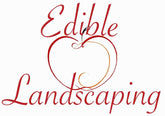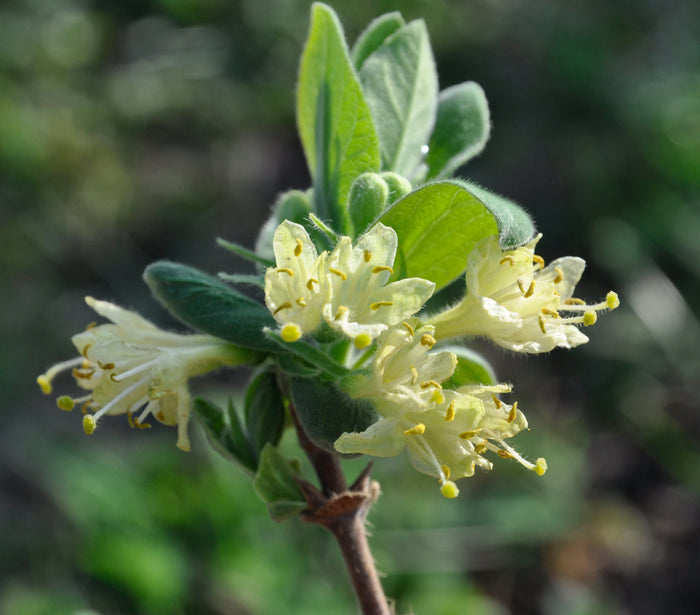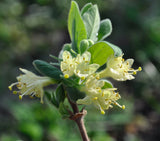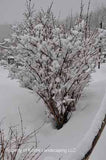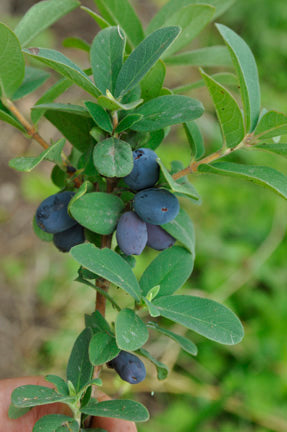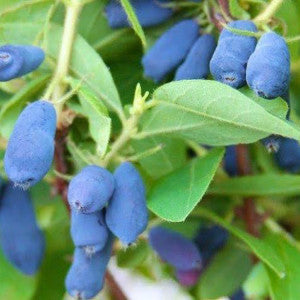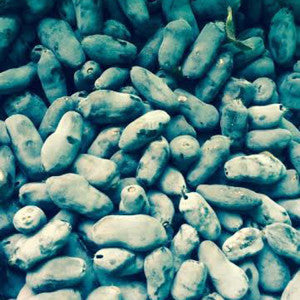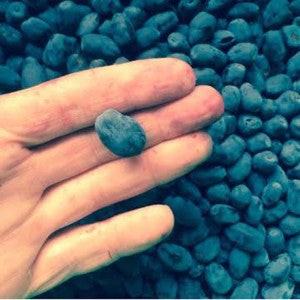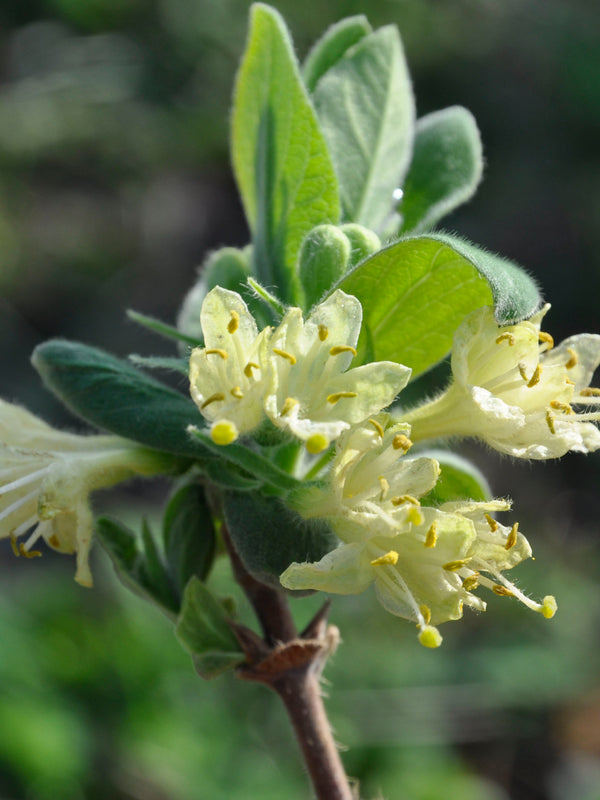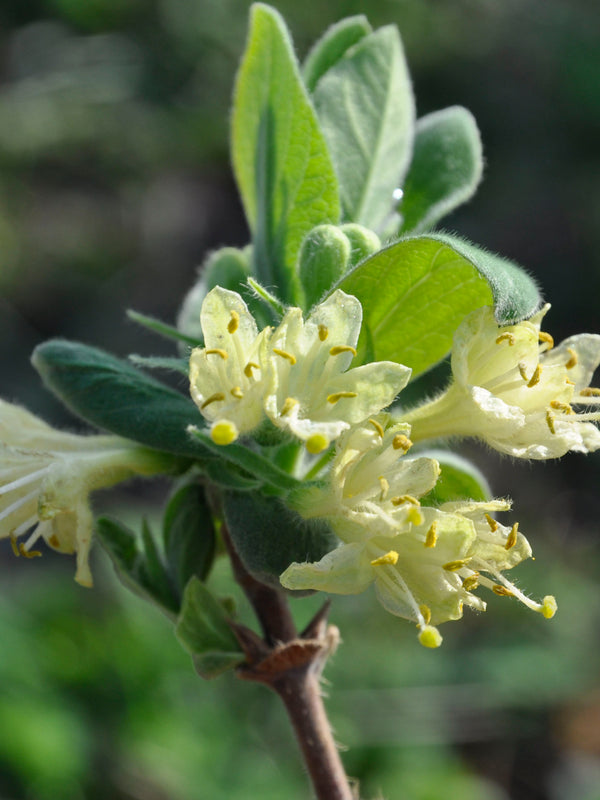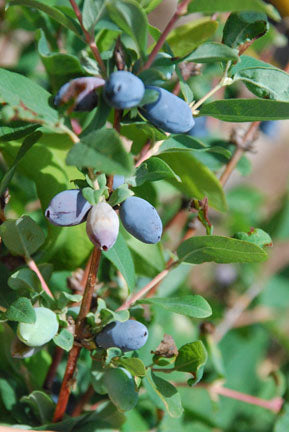Lonicera caerulea edulis
Blue Pacific is a compact bush. From the east coast of Russia, this attractive variety features a spreading form, light green foliage, and large, light blue, tasty fruit. Choose Berry Blue to pollinate. Space 4' circle, height 2-3' tall. Zone 3-7
| Plant Characteristics | |
|---|---|
| Pest Resistance | Excellent |
| Disease Resistance | Excellent |
| Drought Tolerance | Fair |
| Heat Tolerance | Good |
| Humidity Tolerance | Excellent |
| Sun Tolerance | Good |
| Wet Soil Tolerance | Poor |
| Shade Tolerance | Good |
| No Spray | Excellent |
| Salt Tolerance | Fair |
| Fresh for Kids | Good |
| Deer Resistance | Good |
| Thorns | No |
| Plant Type | Shrub |
| Soil Type | Adaptable |
| Edible Type | Fruit |
| Self Fertile | No |
| This information is accurate to the best of our knowledge, comments/opinions are always welcome | |
Edible Honeysuckle are among the first fruits of the season
A unique member of the Honeysuckle family native to Eastern Siberia. This very hardy deciduous species has been a valued fruiting plant for ages and yet is virtually unknown in Europe and America. An attractive small bush, it produces tasty small fruits about the size and flavor of blueberries. Small white, slightly fragrant flowers appear in March. Fruit ripens two weeks before strawberries. Very easy to grow with no pest or disease problems.
Site & Soil
Edible Honeysuckle is a shade-loving plant in all areas except the far north, where it is happyin full sun. It prefers moderately well-drained, yet moist, soil. Mulching with compost, peat moss or decomposed manure helps maintain adequate soil moisture.
Pollination
Honeysuckle is not self-fertile. Plant at least two varieties if fruit is desired. When we ship we sent two different types.
Bearing age
1-2 years after planting.
Hardienss

Honeysuckle bush in snow
One of the hardiest fruiting plants, to minus 40*F minus 40*C (zone3).
